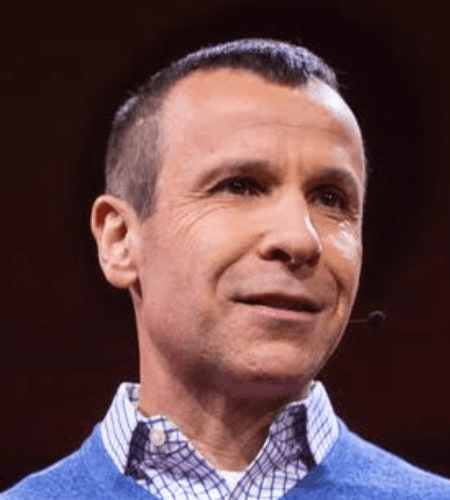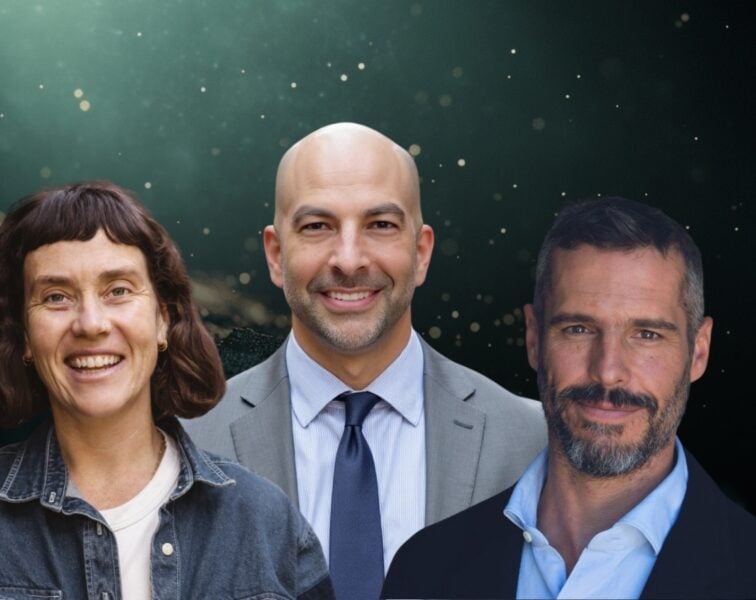Guy Winch is a psychologist, author, and co-host of the Dear Therapist podcast. In this episode, Guy speaks to the commonality of the human condition with relatable stories from his decades of therapy sessions as well as his own experience with incessant rumination in the early days of his private practice. He shares insights on what he sees as an epidemic of rumination that leads to career burnout, the consequences of social comparison heightened by social media, and the psychological impact of not recognizing success. He emphasizes the need for a “psychological medicine cabinet” and provides concrete and practical tools for treating emotional injuries. He concludes with a discussion about the widespread impact of the coronavirus pandemic on emotional health and how we can use experienced psychologists in a time when it’s especially needed.
Want more content like this? Check out our interviews with Kristin Neff on the power of self-compassion and Esther Perel on the effects of trauma.
Subscribe on: APPLE PODCASTS | RSS | GOOGLE | OVERCAST | STITCHER
We discuss:
- The unique format and impetus for Guy’s podcast with Lori Gottlieb (3:00);
- How Guy pieced together the many different schools of thought in psychology to develop his own unique approach (7:45);
- The most important component of successful therapy, and why it sometimes makes sense to “break the rules” (19:30);
- Insights extracted from Guy’s own battle with extreme stress and anxiety around finishing his education and starting his private practice (28:15);
- The epidemic of rumination, burnout, and the inability to psychologically leave work (34:15);
- Antidotes to incessant rumination, and tips for transitioning from work to home to avoid burnout (41:15);
- The psychology of complaining: The hidden cost of complaining incorrectly and benefits of learning how and when to complain (52:30);
- The consequences of social comparison, and the impact of “failure” on emotional health (1:02:15);
- How Guy helps people who struggle to acknowledge any level of success (1:07:30);
- Emotional first aid: The importance of a psychological medicine cabinet for treating emotional injuries (1:19:00);
- The role of therapists in normalizing the discussion of emotional injuries and illuminating the commonality of feelings (1:27:45);
- The widespread impact of the coronavirus pandemic on emotional health (1:35:15);
- How to properly use affirmations—a tool for treating psychological injuries (1:42:00);
- The importance of nuanced language and the stories we tell ourselves (1:47:30);
- Peter’s favorite episode of the Dear Therapist Podcast (1:53:15); and
- More.
Get Peter’s expertise in your inbox 100% free.
Sign up to receive An Introductory Guide to Longevity by Peter Attia, weekly longevity-focused articles, and new podcast announcements.
The unique format and impetus for Guy’s podcast with Lori Gottlieb [3:00]
Hosted by Guy Winch (who writes an advice column for TED) and fellow therapist Lori Gottlieb (who writes an advice columnist for The Atlantic
- Initial concept was just advice, however, they wanted to do something different because the thing that’s always frustrated Guy is that even if you can give the most brilliant advice, you never find out what happened
- The podcast format is such that they bring in a new letter each week, reading the letter to one another, and then do a very brief case consultation like we would in a therapy office
- Note: the brief case consultation is done totally cold and organically live on the podcast
- They then immediately bring in the guest, and do a session
- At the end of the session, Guy and Lori each give the guest very actionable advice that they have to do within a week
- Next, Guy and Lori give some predictions about what we think will happen
- Then they hear back from the guest to find out what happened when they implemented the advice: how they felt about it, how it went, what they took from it
- Finally, Guy and Lori give closing thoughts as therapists to the situation
How Guy pieced together the many different schools of thought in psychology to develop his own unique approach [7:45]
Early years and education
- Guy has wanted to be a therapist from an early age
- He recalls back to age 14 wanting to be a psychologist
- He was born in England but his formative years were spent in Israel
- Has an identical twin who he is very close with: “If you can’t get along with the person that’s most like you in the world, then you have some work to do to figure out why you don’t like yourself.”
- He came to the US after his undergraduate degree
- He completed a master’s and PhD at NYU, and then I did a postdoc at NYU Medical Center
During Guy’s education, how did he refine his interests?
{end of show notes preview}
Would you like access to extensive show notes and references for this podcast (and more)?
Check out this post to see an example of what the substantial show notes look like. Become a member today to get access.

Guy Winch, Ph.D.
Guy Winch is a licensed psychologist who works with individuals, couples and families. As an advocate for psychological health, he has spent the last two decades adapting the findings of scientific studies into tools his patients, readers and audience members can use to enhance and maintain their mental health. As an identical twin with a keen eye for any signs of favoritism, he believes we need to practice emotional hygiene with the same diligence with which we practice personal and dental hygiene.
His books — Emotional First Aid: Healing Rejection, Guilt, Failure, and Other Everyday Hurts; The Squeaky Wheel: Complaining the Right Way to Get Results, Improve Your Relationships and Enhance Self-Esteem; and How to Fix a Broken Heart have been translated into 26 languages. He also writes the popular “Squeaky Wheel Blog” on PsychologyToday.com.
In January, Winch partnered with TED to launch Dear Guy, a science-based advice column for TED’s Ideas blog. His new podcast, Dear Therapists, is cohosted with fellow TED speaker Lori Gottlieb and executive produced by Katie Couric. He has also dabbled in stand-up comedy. [ted.com]



